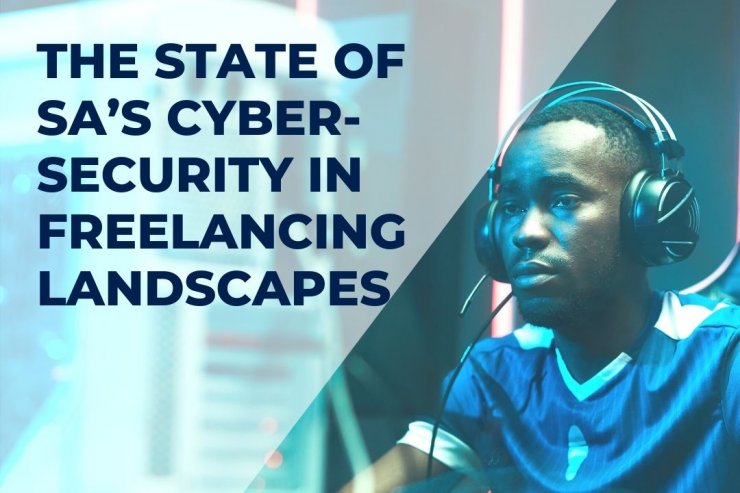
Since the outbreak of Covid-19 and the subsequent government directives worldwide for quarantine and remote working, cyber threats have increased. According to Accenture's report, malware attacks in South Africa rose by 22% in the first quarter of 2019, translating to 577 attack attempts per hour. Freelancers and other remote workers working for financial institutions and healthcare have been among the most affected people.
Some of the cyber-security risks for online workers include:
Ransomware
Ransomware involves the hijacking of devices by encrypting them and making data inaccessible. The attackers ask for payment before giving you a decryption key, usually in Bitcoin, as it provides anonymity for the criminals.
Phishing
Phishing involves sending fake emails that seem to originate from a trusted source such as a close friend or colleague. These emails have links or attachments that redirect you to a phony website designed like the legitimate site. Once in the site, it prompts you to input your username, password, credit card numbers, etc. This information can then be used to hack into your accounts and cause damage.
DDoS
DDoS or Distributed Denial of Service is the malicious and intentional attempt to disrupt a targeted server, network, or service’s traffic by jamming it with an overload of traffic. A DDoS is likened to a traffic snarl-up that prevents you from going to where you need to go.
Data Leaks
Data leaks happen when private and confidential data is released to the public, especially when third parties have data access. In February, Nedbank, one of South Africa’s biggest banks, suffered a data leak that saw the data of 1.7 million users compromised through Computer Facilities, a marketing company used for marketing campaigns.
How to protect yourself from cyber threats
Install a VPN
A VPN or Virtual Private Network is an excellent tool that encrypts all your data using a military level encryption code called AES-256. It hides your real location by allocating you to a virtual location. It also masks your IP address ensuring hackers cannot trace you. Do not use free Wi-Fi in public places unless you are using a VPN for protection.
Stronger Passwords
Using strong passwords ensures hackers do not hack you via brute force, a computer program that guesses all possible usernames and passwords until they get the right one. Ensure your password is alphanumeric; at least twelve characters long, and includes special symbols.
2FA
The 2FA or two-factor authentication ensures that you use two authentication methods to log in. You can use your password; a unique one-time code sent to a trusted device, a password, and a biometric authentication method such as a fingerprint or retina scans.
Account breach monitoring
Account breach monitors alert you in case of an account breach. Somebody can hack into your account, and you will never know until it is too late. Before you are hacked, use this monitor to alert you, and even after you have been hacked, you can use this tool to alert you in case of any suspicious activity in your account.
Avoid clicking on links
To avoid getting phished or infecting your devices with malware or ransomware, be wary of clicking links or downloading attachments in emails. Hover the mouse on the link to see its origin, but to be safe, go to the official website if the connection is from an institution or business. Delete the email as well to be safe.
Conclusion
Remote workers and freelancers spend a lot of time online. With the Covid-19 situation, most hackers have devised ways to scam people online most of the time. Most people do not think twice about using an easy to guess password or using free and unsecured Wi-Fi in such places like coffee shops. Your cyber-security starts with you being more vigilant when using the internet.
 The article was written by Amy Cavendish. Amy Cavendish is a content strategist at the TechFools, a tech blog aiming to inform readers about the potential dangers of technology and introduce them to the best ways to protect themselves online. As an outspoken advocate for digital freedom, Amy is dedicated to empowering her readers to take control of their digital lives with her thought-leadership articles.
The article was written by Amy Cavendish. Amy Cavendish is a content strategist at the TechFools, a tech blog aiming to inform readers about the potential dangers of technology and introduce them to the best ways to protect themselves online. As an outspoken advocate for digital freedom, Amy is dedicated to empowering her readers to take control of their digital lives with her thought-leadership articles.
